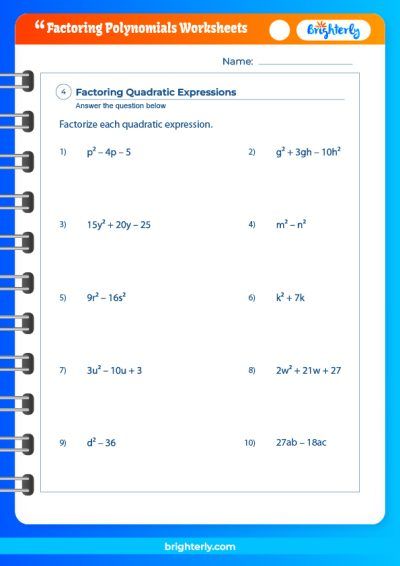Adding and Subtracting Polynomials – Definition with Examples
Updated on January 12, 2024
Polynomials are expressions in mathematics that include coefficients multiplied by the sum of powers in one or more variables. For example, is a polynomial. It consists of terms, where each term includes a coefficient (like 3, 4, -5) and a variable (like ) raised to an exponent (like 2 in ). The highest power of the variable in the polynomial is known as the degree of the polynomial. So, in , the degree is 2. In many branches of mathematics and research, polynomials are employed for problem solving and modeling.
Basic Operations on Polynomials
Addition, subtraction, multiplication, and division are the fundamental operations on polynomials. Polynomial equations can be simplified and solved with the use of these techniques. In polynomial addition and subtraction, like terms—that is, terms with the same variable raised to the same power—are combined. For instance, in and , 2 and are like terms.
Definition and Examples of Adding Polynomials
Adding polynomials involves combining like terms from each polynomial. Like terms are those that have the same variable raised to the same power. For example, when adding and , we combine and and then and . The result is . The process is straightforward: align the like terms and add their coefficients.
Definition and Examples of Subtracting Polynomials
Subtracting polynomials is similar to adding them, but instead, we subtract the coefficients of like terms. For instance, consider and . To subtract the second polynomial from the first, we subtract the coefficients of (5 – 3) and the coefficients of (6 – 2), resulting in . It’s important to distribute the subtraction sign to each term of the polynomial being subtracted.
Steps for Adding and Subtracting Polynomials
The steps for adding and subtracting polynomials are straightforward:
- Identify and arrange like terms.
- For addition, add the coefficients of like terms. For subtraction, subtract the coefficients of like terms.
- Write down the result, combining the new coefficients with the respective variables and powers.
Guidelines for Adding Polynomials
When adding polynomials:
- Arrange the polynomials so that like terms are lined up.
- Add the coefficients of like terms.
- Keep the variable and its exponent the same.
Guidelines for Subtracting Polynomials
For subtracting polynomials:
- Arrange the polynomials with like terms lined up.
- Distribute the subtraction sign to each term of the polynomial being subtracted.
- Subtract the coefficients of like terms.
- Keep the variable and its exponent unchanged.






